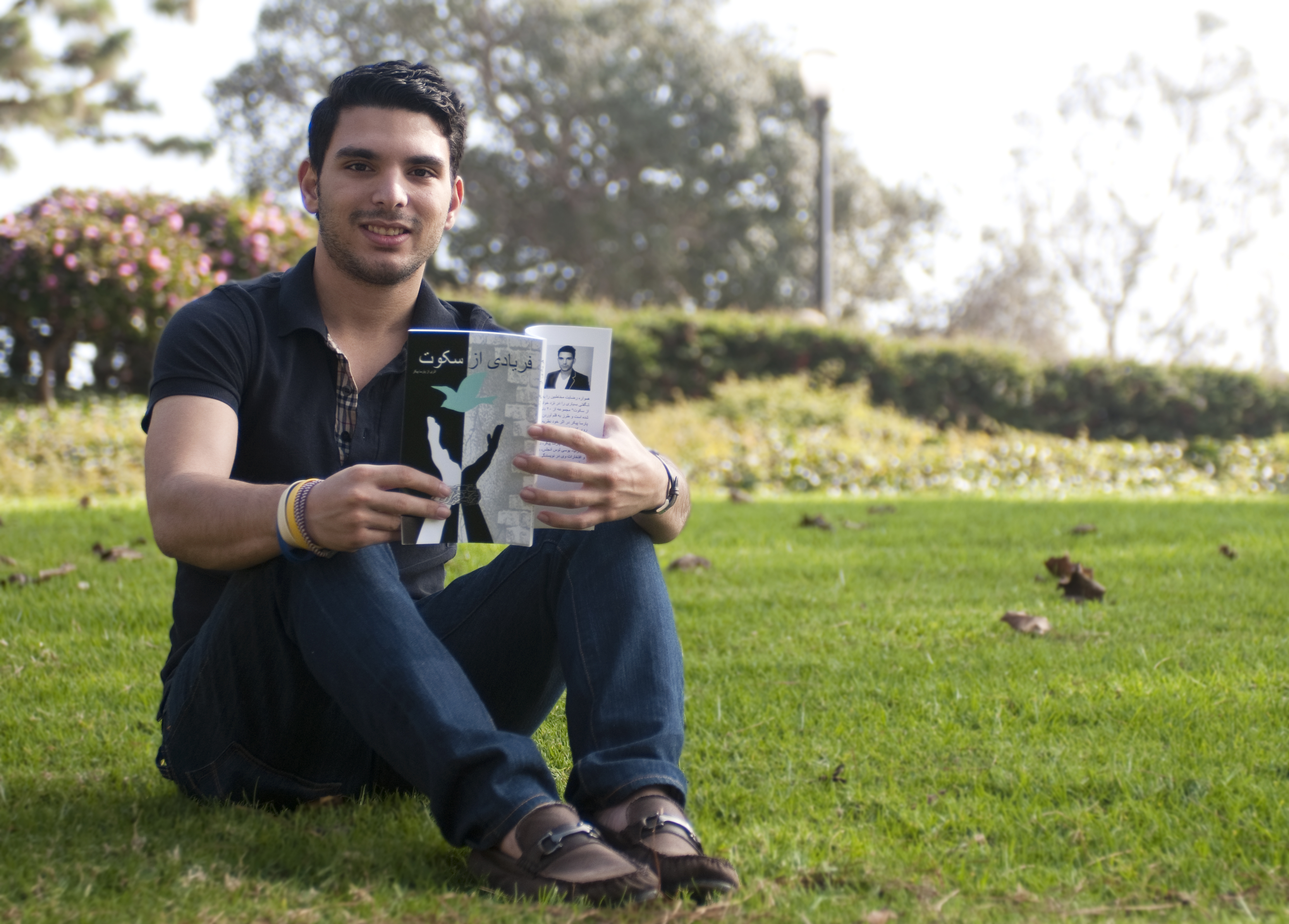Parsa Peykar donates to charity, has played on a national soccer team and has two books published ““ he is only 20 years old.
Peykar, a third-year psychology student who transferred from Santa Monica College, recently published and had signings for his second book “Scream of Silence”, written in his native Iranian language Farsi. “Scream of Silence” is a collection of 20 short stories that reveal many of the sagacious life lessons Peykar has discovered since moving to America from Iran when he was 14.
Many of these short stories in Peykar’s work were inspired by the difficult transition his family experienced emigrating from the once wealthy lifestyle they had in Tehran, Iran ““ where Peykar’s father was both a professional soccer player and doctor.
“After we moved here my father lost most of our money in a business so we came here with very little money for a family of four,” Peykar said. “I had to work at a car wash when I was 14, but all of those things made me a stronger person, made me write, made me grow faster.”
It was this kind of challenging adolescence that instilled Peykar’s sense of empathy and compassion that seems to be a motif throughout his work.
“In my second book especially, I talk a lot about women’s rights,” Peykar said. “In Iran, a man can have up to eight to 10 wives, but a woman can only marry one man. If she marries a lot of guys then she would be imprisoned or killed. I’m really against those ideas; I think that both men and women should share the same rights.”
The particular short story Peykar refers to describes a male journalist who goes to a prison to interview a woman arrested for standing up for her rights. She agrees to the interview under the condition that it be published after her death. By the end of the story the woman is killed in prison, and the man’s story is published as a statement.
Many of the short stories in Peykar’s second book “Scream of Silence” revolve around this idea of the suppressed voices of the Iranian people.
“There are a lot of smart people but they can’t say anything,” Peykar said. “”˜Scream of Silence’ is not political but it’s like people talking in Iran. They can’t raise their voices because they’ll probably end up in prison.”
Peykar said his ability to share his own voice in America has been one of the greatest perks of writing his books.
“To get people to know me, to share my ideas, that was the best feeling for me because I was satisfying myself. When I look around my friends, I was the only one with published books,” Peykar said.
After UCLA, Peykar aspires to go to law school because he said he wants to defend the innocent people who can’t defend themselves. This empathetic quality continually shows up in Peykar’s work.
Peykar’s brother Pouya Peykar said he particularly liked one of Peykar’s stories about a teacher because it exposed some of the surprising wisdom Peykar possesses at such a young age.
“The students didn’t show him much respect, but Parsa’s character wanted to defend him and call him an angel,” Pouya Peykar said. “But the teacher said “˜No, I am not an angel because there are no perfect creatures in this world.'”
Peykar’s sagacity and writing ability were shocking to many of his peers who merely saw him as a 20-year-old that aspired to follow in his father’s footsteps and become a professional soccer player.
“Parsa, he would be the last person I’d ever expect to write a book,” said Parsa’s friend and graphic artist Amin Siavush. “When he came to me and said I’m publishing a book, can you help me out? I was like, are you serious? Can I read it?”
After reading Peykar’s work, Siavush said he was impressed by the insight on life his friend had to offer and agreed to work with him on the graphics for “Scream of Silence.”
Peykar said he also hopes to eventually translate his books into English so his messages can reach a wider audience.
“Many people tell me to try to translate it into English because it makes sense in every language if you talk about something that’s universal,” Peykar said. “It’s all the same in all cultures. These messages are going to mean the same thing.”
